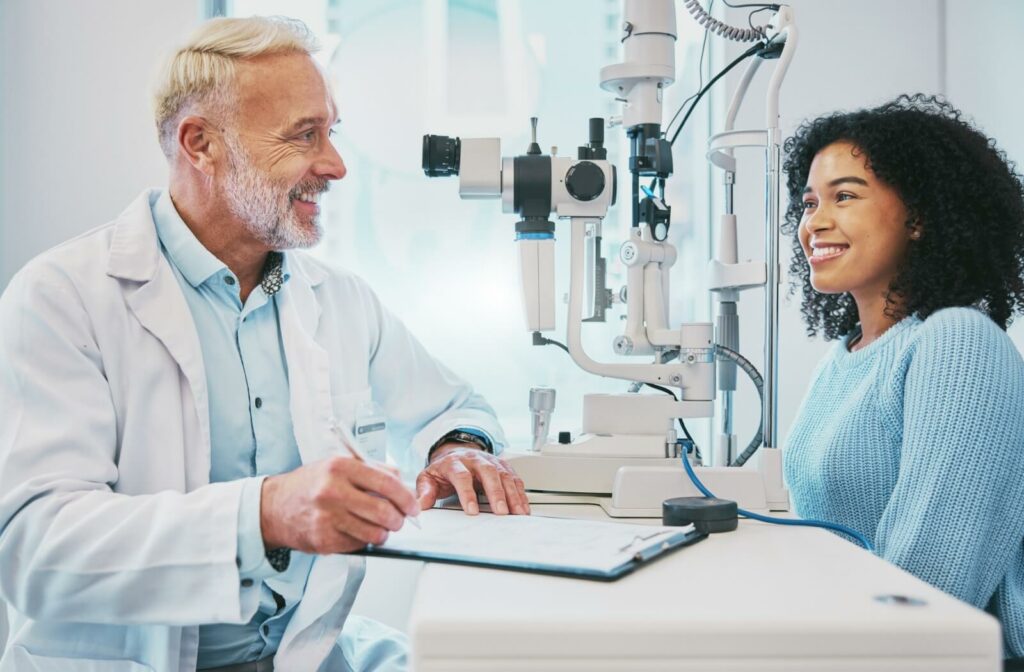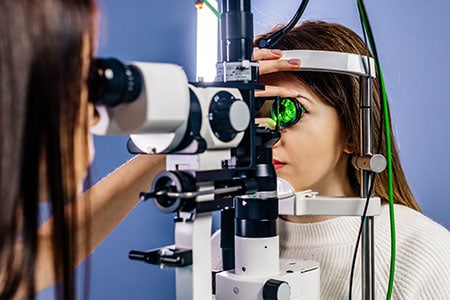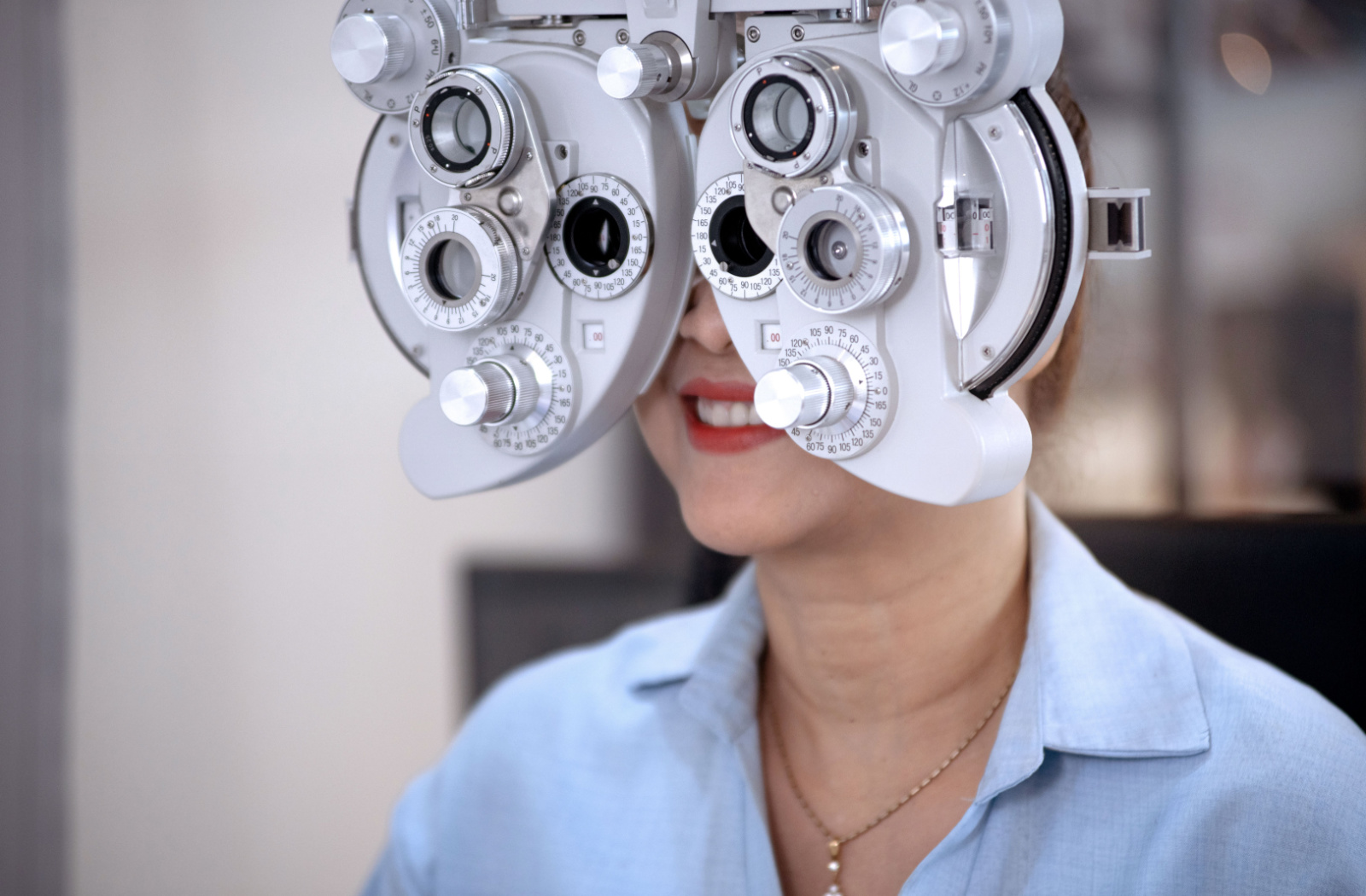All Categories
Featured
Opening Opportunities: Comprehensive Low Vision Rehab Alternatives.
Dealing with reduced vision can present distinct obstacles, but modern-day rehabilitation approaches encourage people to adjust and thrive. From innovative innovation to hands-on training, there are countless choices designed to improve everyday life and foster independence. Right here's an in-depth check out the varied rehab options offered for those with reduced vision.
The Role of Low Vision Recovery
Reduced vision recovery concentrates on helping people enhance their remaining vision and create skills to handle their environments. With a combination of devices, training, and personalized support, rehab programs improve functionality and increase confidence in browsing daily tasks.
Trick Low Vision Rehabilitation Options
Custom-made Visual Help
High-Powered Magnifiers: These gadgets can be found in portable, wearable, or digital styles, allowing individuals to check out, compose, or sight things up close.
Telescopic Glasses: Perfect for improving range vision, these glasses aid with tasks such as viewing television or reading signs.
![]()
Filter Lenses: Tinted lenses reduce glare, boost contrast, and supply UV defense, improving convenience and exposure.
Technical Technologies
Digital Zoom Tools: Desktop and portable gadgets provide flexible magnification, making it possible for much easier accessibility to published materials and digital web content.
![]()
Voice-Assisted Technology: Display viewers, voice-enabled smartphones, and AI-driven applications help individuals browse the digital globe more efficiently.
Wearable Vision Aids: Smart glasses geared up with cams and auditory feedback supply real-time aid with reading, identifying objects, and spatial positioning.
Specialist Training Programs
Positioning and Flexibility Training: This program teaches people exactly how to relocate confidently within their homes and neighborhoods, typically including walking canes or guide canines.
Daily Living Skills: Specialized training outfits people with techniques to carry out necessary tasks such as cooking, dressing, and managing house chores.
Flexible Visual Strategies: Specialists overview people on leveraging peripheral vision or scanning techniques to make up for vision loss.
Ecological Adjustments
![]()
Simple modifications in the house or job can considerably improve accessibility:
Utilizing contrasting colors for far better object differentiation.
Including task illumination to improve visibility.
Marking devices with tactile signs for easier procedure.
Psychological and Social Assistance
Dealing with vision loss commonly involves emotional adjustments. Support teams and therapy services use a safe area to share experiences and build durability.
Peer mentoring programs connect individuals with comparable difficulties, cultivating sociability and shared options.
Accessing Rehab Services
Reduced vision recovery services are widely offered with:
Specialized Clinics: Optometrists and ophthalmologists educated in low vision treatment provide tailored evaluations and remedies.
Nonprofit Organizations: Groups like the American Structure for the Blind and VisionAware provide resources, advice, and referrals.
Area Centers: Local solutions may give low-priced or free training and accessibility to assistive tools.
Final Ideas
Low vision does not have to indicate a diminished lifestyle. With the best mix of tools, training, and support, people can regain freedom and appreciate fulfilling lives. By exploring the many rehabilitation choices offered, those with reduced vision can locate approaches that function best for their distinct needs and circumstances. If you or a liked one deals with vision difficulties, do not wait to connect to a reduced vision specialist to start the trip towards empowerment and adaptability.
Dealing with reduced vision can present distinct obstacles, but modern-day rehabilitation approaches encourage people to adjust and thrive. From innovative innovation to hands-on training, there are countless choices designed to improve everyday life and foster independence. Right here's an in-depth check out the varied rehab options offered for those with reduced vision.
The Role of Low Vision Recovery
Reduced vision recovery concentrates on helping people enhance their remaining vision and create skills to handle their environments. With a combination of devices, training, and personalized support, rehab programs improve functionality and increase confidence in browsing daily tasks.
Trick Low Vision Rehabilitation Options
Custom-made Visual Help
High-Powered Magnifiers: These gadgets can be found in portable, wearable, or digital styles, allowing individuals to check out, compose, or sight things up close.
Telescopic Glasses: Perfect for improving range vision, these glasses aid with tasks such as viewing television or reading signs.

Filter Lenses: Tinted lenses reduce glare, boost contrast, and supply UV defense, improving convenience and exposure.
Technical Technologies
Digital Zoom Tools: Desktop and portable gadgets provide flexible magnification, making it possible for much easier accessibility to published materials and digital web content.

Voice-Assisted Technology: Display viewers, voice-enabled smartphones, and AI-driven applications help individuals browse the digital globe more efficiently.
Wearable Vision Aids: Smart glasses geared up with cams and auditory feedback supply real-time aid with reading, identifying objects, and spatial positioning.
Specialist Training Programs
Positioning and Flexibility Training: This program teaches people exactly how to relocate confidently within their homes and neighborhoods, typically including walking canes or guide canines.
Daily Living Skills: Specialized training outfits people with techniques to carry out necessary tasks such as cooking, dressing, and managing house chores.
Flexible Visual Strategies: Specialists overview people on leveraging peripheral vision or scanning techniques to make up for vision loss.
Ecological Adjustments

Simple modifications in the house or job can considerably improve accessibility:
Utilizing contrasting colors for far better object differentiation.
Including task illumination to improve visibility.
Marking devices with tactile signs for easier procedure.
Psychological and Social Assistance
Dealing with vision loss commonly involves emotional adjustments. Support teams and therapy services use a safe area to share experiences and build durability.
Peer mentoring programs connect individuals with comparable difficulties, cultivating sociability and shared options.
Accessing Rehab Services
Reduced vision recovery services are widely offered with:
Specialized Clinics: Optometrists and ophthalmologists educated in low vision treatment provide tailored evaluations and remedies.
Nonprofit Organizations: Groups like the American Structure for the Blind and VisionAware provide resources, advice, and referrals.
Area Centers: Local solutions may give low-priced or free training and accessibility to assistive tools.
Final Ideas
Low vision does not have to indicate a diminished lifestyle. With the best mix of tools, training, and support, people can regain freedom and appreciate fulfilling lives. By exploring the many rehabilitation choices offered, those with reduced vision can locate approaches that function best for their distinct needs and circumstances. If you or a liked one deals with vision difficulties, do not wait to connect to a reduced vision specialist to start the trip towards empowerment and adaptability.
Latest Posts
Don’t Miss Special Auto Repair Specials in Chicago at Montclare Auto Repair
Published May 25, 25
1 min read
Safeguard Your Investment with Professional Gutter Installment
Published May 22, 25
1 min read
Discover the Storied Past of Deauville Inn: From Speakeasy to Seafood Haven
Published May 20, 25
2 min read
More
Latest Posts
Don’t Miss Special Auto Repair Specials in Chicago at Montclare Auto Repair
Published May 25, 25
1 min read
Safeguard Your Investment with Professional Gutter Installment
Published May 22, 25
1 min read
Discover the Storied Past of Deauville Inn: From Speakeasy to Seafood Haven
Published May 20, 25
2 min read